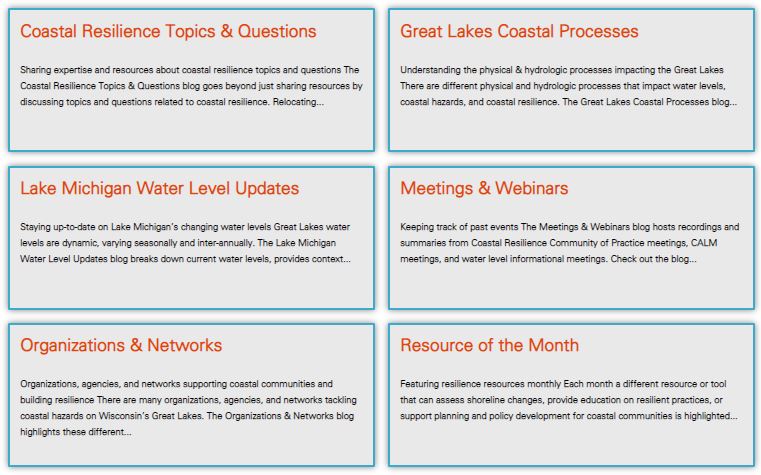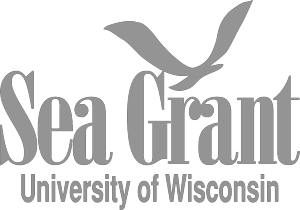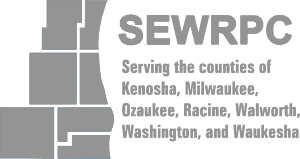
The Wisconsin Coastal Resilience website is a hub for coastal resilience related information for Wisconsin’s Lake Michigan coastal communities and practitioners.
Wisconsin Coastal Resilience
The Wisconsin Coastal Resilience website is a hub for coastal resilience related information for Wisconsin’s Lake Michigan coastal communities and practitioners. This website is hosted and updated by Wisconsin Sea Grant and funded by the National Oceanic and Atmospheric Administration.
Wisconsin’s Lake Michigan coastal communities face erosion and flooding hazards due to lake level fluctuations, coastal storms, waves, storm surges and extreme precipitation. Resilient communities plan, prepare for and adapt to these conditions so they can “bounce back” when hazardous events occur. The three ways the website builds resilience in the region are by reducing confusion, increasing collaboration, and building capacity.
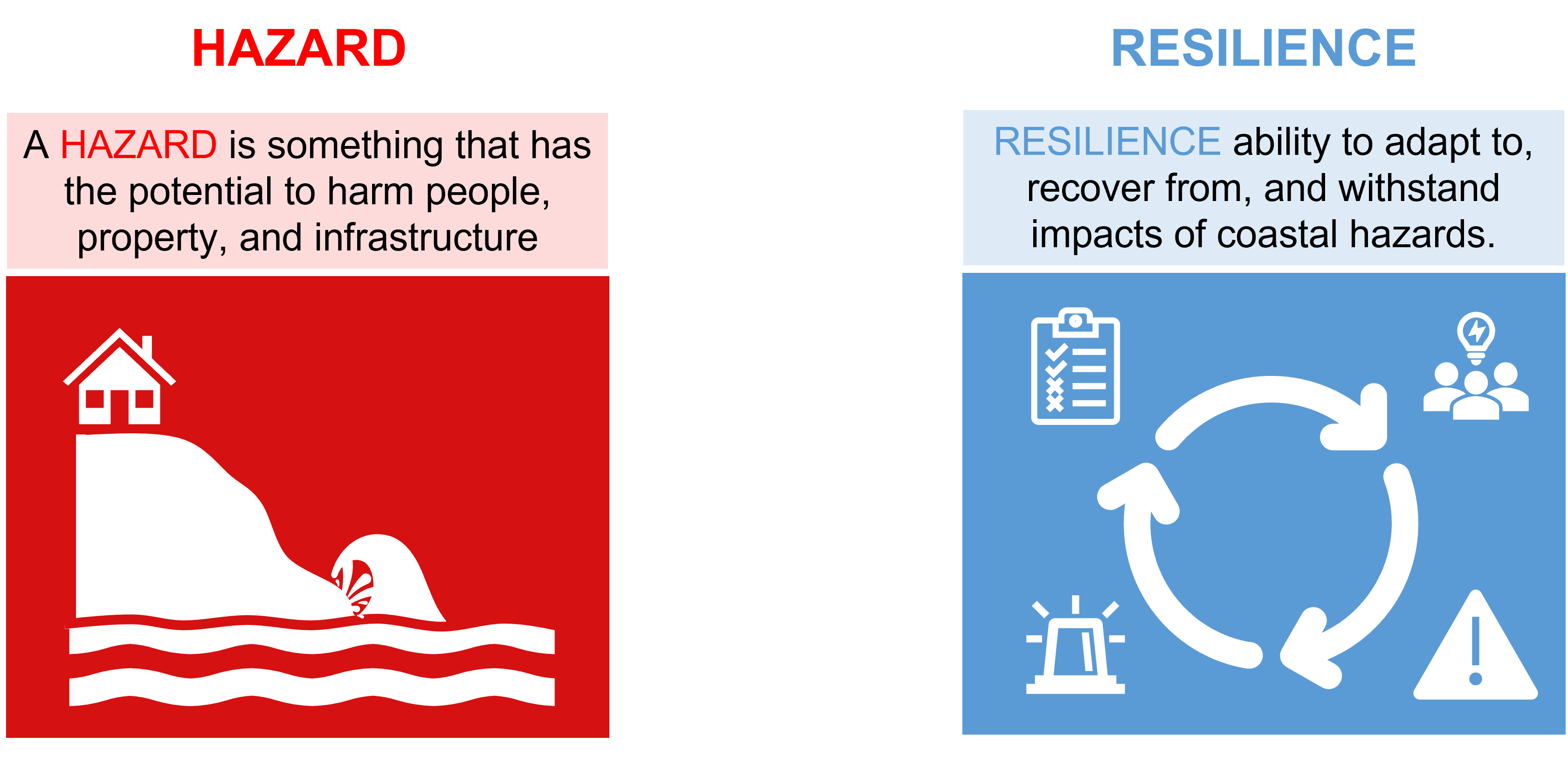
The website uses webpages and blog posts to share information and resources. The target audience of this website includes those who make decisions about Wisconsin’s Lake Michigan coastline including practitioners from organizations, academic institutions, non-profits, and state and federal agencies; municipal staff and emergency managers from coastal counties and municipalities; locally elected officials and state and regional representatives; and property owners. However, the website also receives traffic from outside Wisconsin including Illinois, Michigan, and Canada. These other Great Lakes stakeholders may find the website’s content applicable in their coastal regions.
Reduce Confusion
Because of the amount of resilience related work happening in the region, it’s necessary to reduce the confusion about “who is doing what” and where you can find the information you need to make informed decisions. Eliminating confusion allows communities and practitioners to better leverage each other’s work and the tools and resources that are available.
Organizations & Networks in Coastal Resilience
Many organizations, agencies, and networks in Wisconsin work with coastal communities. This website identifies these groups and provides information about they support coastal resilience.
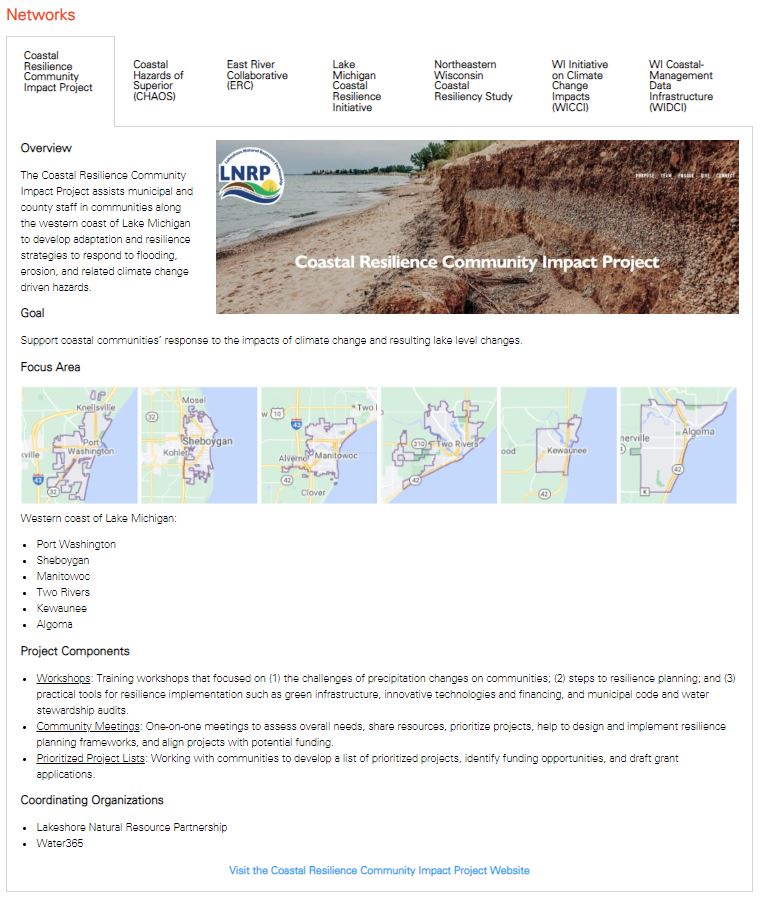
There are also many different places tools and resources can be found to help decision-makers plan and prepare for coastal hazards. This website identifies several hubs for information, tools, and resources that provide information on coastal hazards, risk reduction strategies, and more.
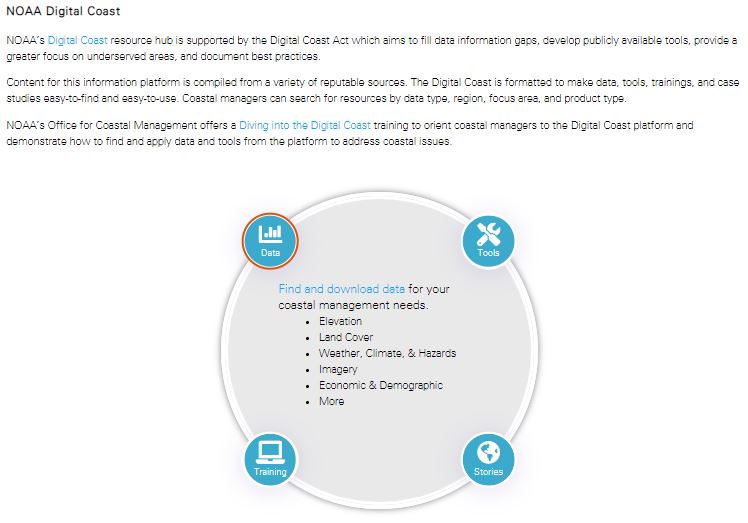
Increase Collaboration
By increasing communication and collaboration between communities, practitioners, and policy/decision-makers, these groups can work together to regionally prioritize hazards to address through collaborative action. Collaboration also supports opportunities to build capacity to address hazards.
A great way to learn about opportunities to enhance resilience to coastal hazards is to learn from peers. The Wisconsin Coastal Resilience website collects stories and lessons learned about local initiatives to enhance coastal resilience in Wisconsin (and throughout the Great Lakes) to help build this knowledge base.
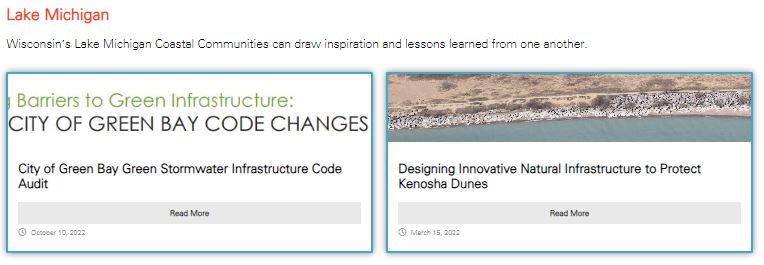
Build Capacity
Building capacity by sharing tools and resources, data, lessons learned, case studies, and more can lead to the development, revision, or adoption of enhanced local ordinances, plans, and policies that address coastal hazards and support community resilience.
The Lake Michigan coast is composed of bluffs, beaches, and waterfront infrastructure. These interconnected coastal features serve as the interface between high-value upland areas and the economic and cultural assets of Lake Michigan. Processes like waves, erosion, sediment transport, flooding, slope stability, and fluctuating lake water levels can combine to damage coastal properties and impair the function of waterfront facilities. This webpage provides and overview of the hazard processes that affect bluffs, beaches, and waterfront infrastructure.
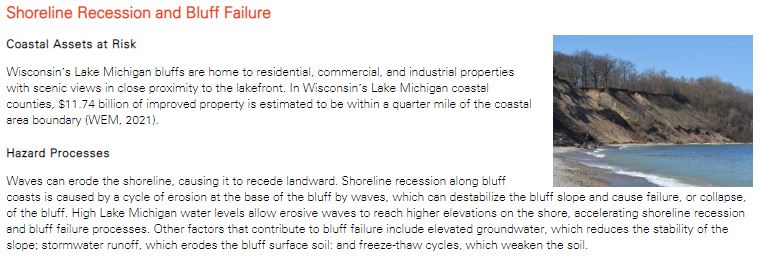
Funding is essential for planning and implementing strategies to address hazards and build resilience. This website shares funding opportunities that can be used to support coastal resilience work.
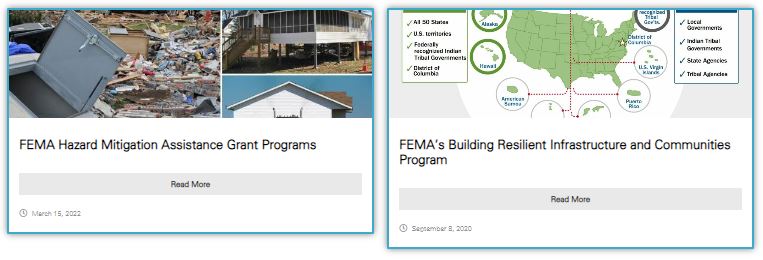
The Wisconsin Coastal Resilience blog includes six topic areas that provide opportunities to learn more about Great Lakes coastal processes, stay up-to-date on changing water levels, review past meetings and webinars, find answers to frequently asked questions, and learn more about Wisconsin’s Lake Michigan stakeholders.
